Submitted by WA Contents
Corhuila University students in Colombia installed Artificial Topographies developed with 3D modeling
Colombia Architecture News - Mar 08, 2021 - 09:50 8166 views

Corhuila University students in Colombia have installed an inflatable structure that hosts their various kinds of school events in an open area of the sports center at the Corhuila University.
Named Artificial Topographies: Between The Real And The Unreal, the project, located in Neiva, Colombia, was designed as a temporary installation to meet the needs of a group of students from the Corhuila University in Colombia.
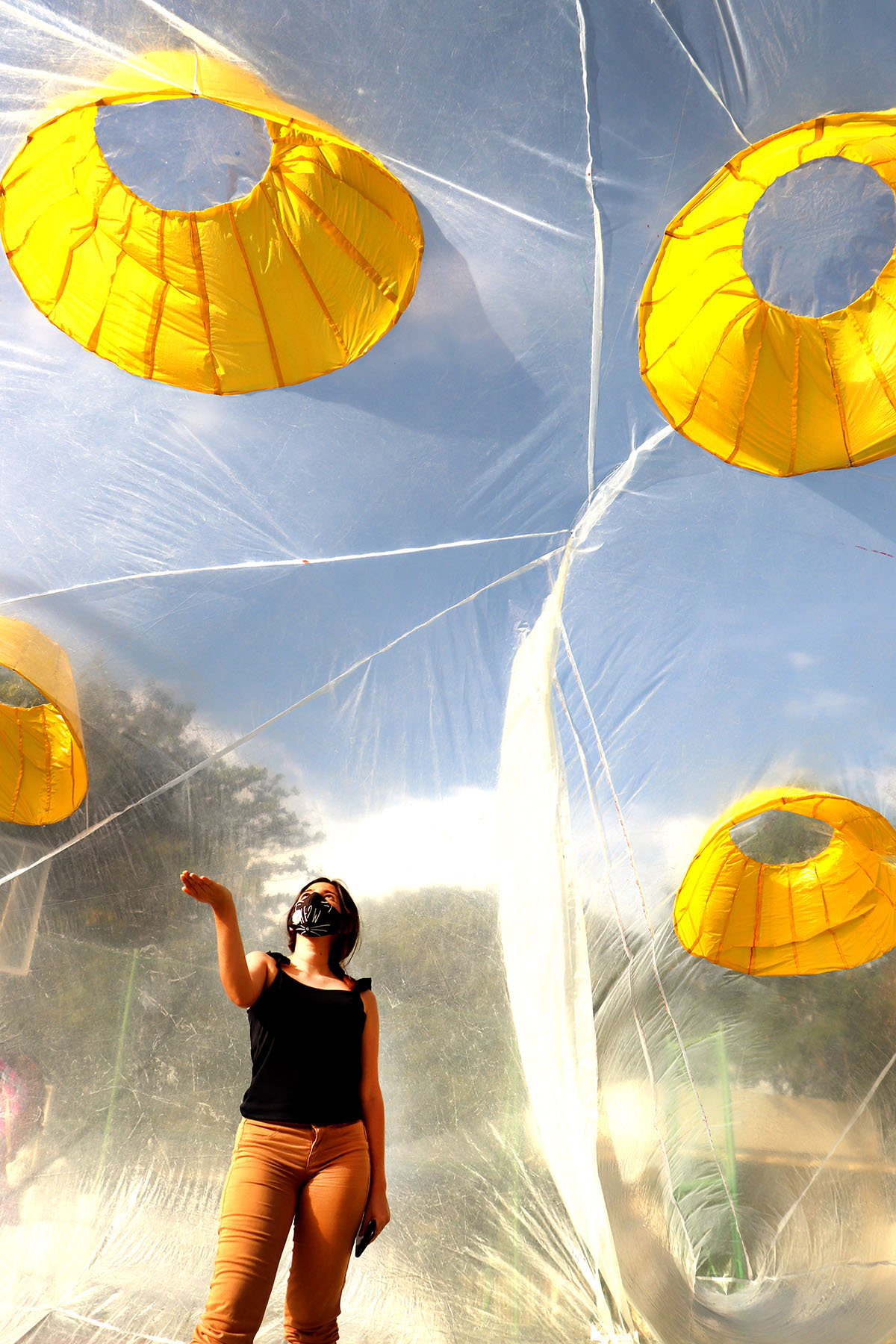
The students sought an alternative to experience the laboratories of the Topography subject, taking into account that for biosafety reasons, the Laboratories are only allowed inside the university cloister facilities and in this case in the area framed by a flat concrete slab of the sports center, which was an unusable area for a survey practice.
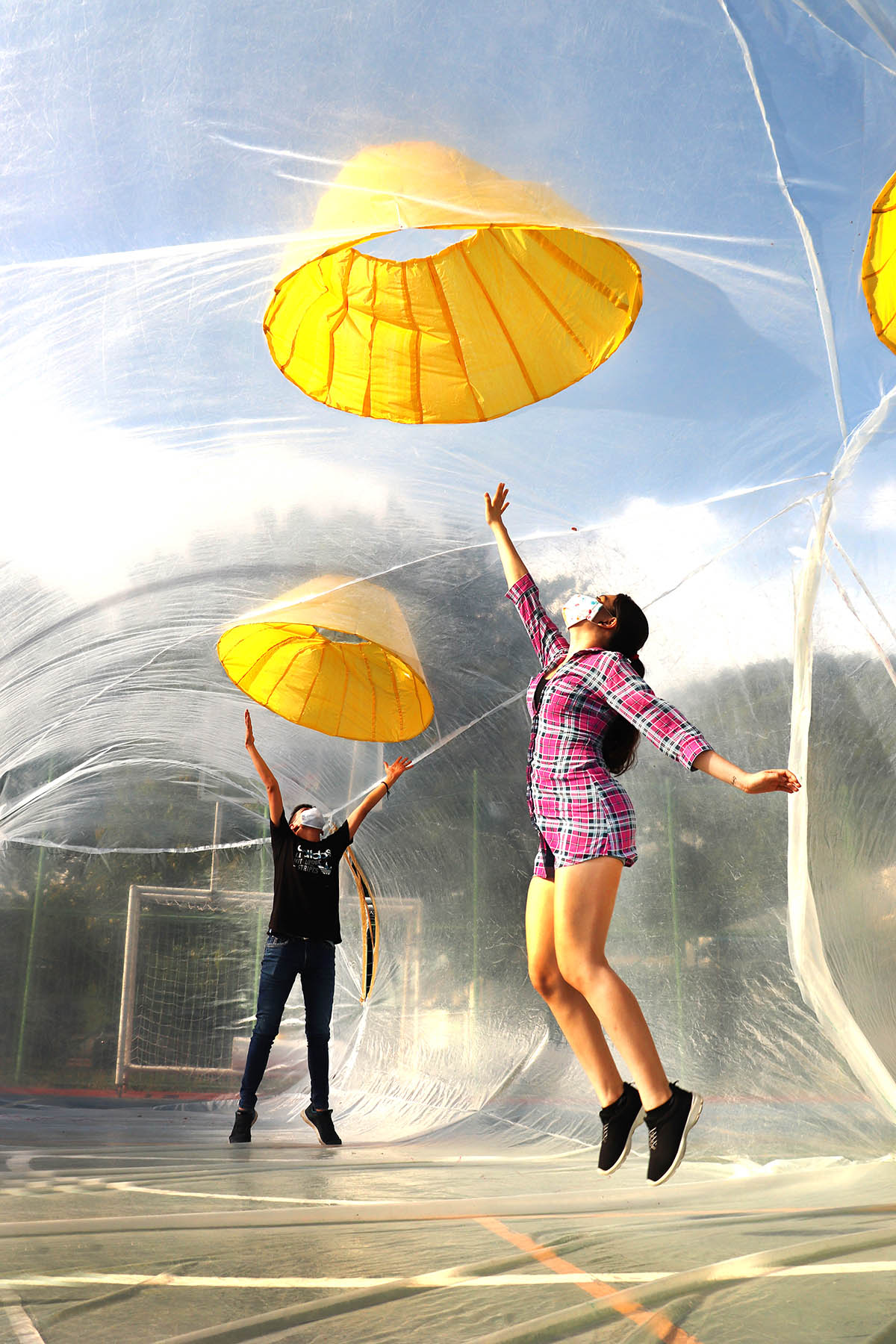
"The global crisis that Covid-19 has unleashed has forced us as a society to reinvent ourselves and be resilient to continue in all aspects of our lives," stated in a project description.
"The academy, from architecture and engineering, should in no way be alien to this call. On the contrary, it must catalyze the different actions of change and transformation that a new society is beginning to undertake today."
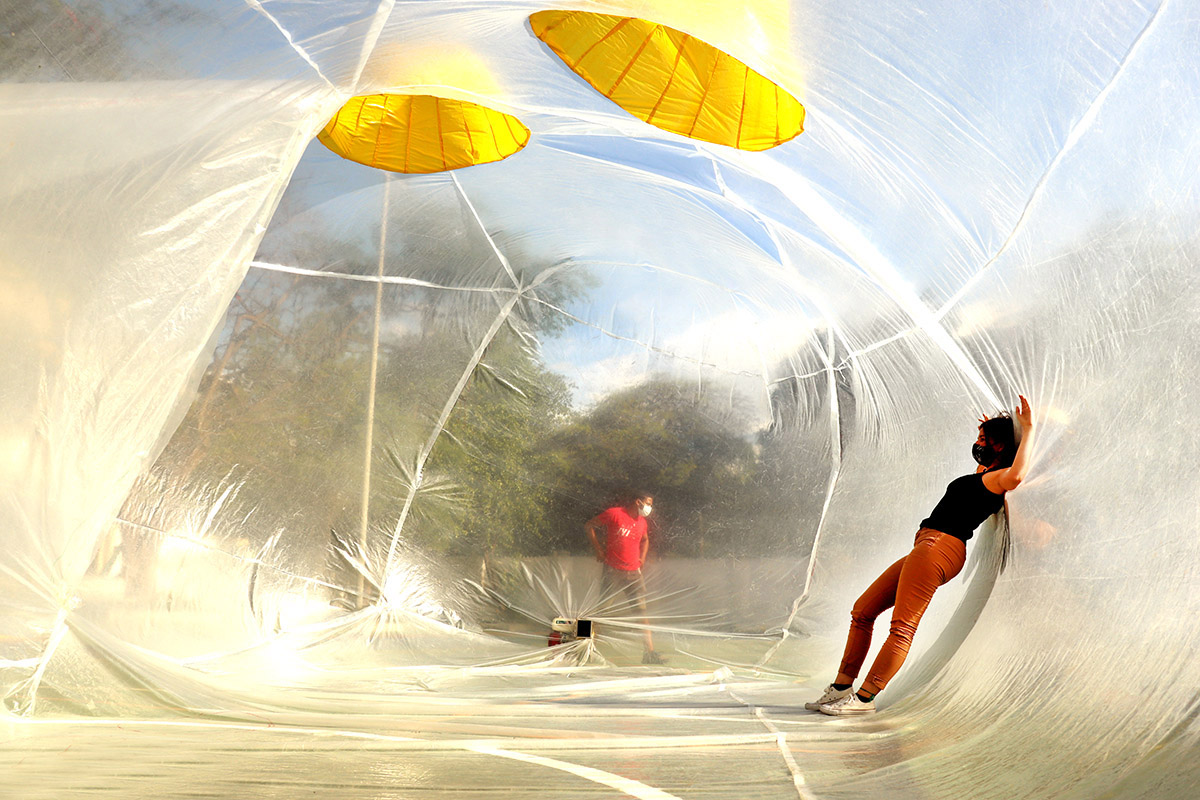
The installation designed and modeled in 3D by the students of the Engineering Drawing subject and built by the Topography students, synthesizes and embodies the idea of building an artificial and ephemeral terrain that is born from a concrete plate and emerges so that the students develop more complex topographic surveys and thus develop the topics explored throughout the semester.

The installation of Artificial Topographies was made of recycled plastic, their design and construction was carried out from an interactive process between the exploration of the material at a 1: 1 scale and different digital tools for 3D modeling.
Its manufacture with a low energy cost was carried out manually from the spreading, marking and cutting of each of the plastic pieces fixed between them with adhesive for PVC and heat applied to each seam that resulted in the design and definition of a pattern.

Based on triangles and semicircles intercepted by four yellow zenith ducts that represent four suns strategically located at each cardinal point of the Cartesian plane that conceptually support the plastic membrane of the artificial topographic structure thanks to a wind turbine, which keeps it rigid and stable.

The structure, in addition to allowing it to be lived, explored and studied externally, also functions as a support to host collective interventions in its interior as a small cultural act or simply a space for a moment of relaxation and exploration.
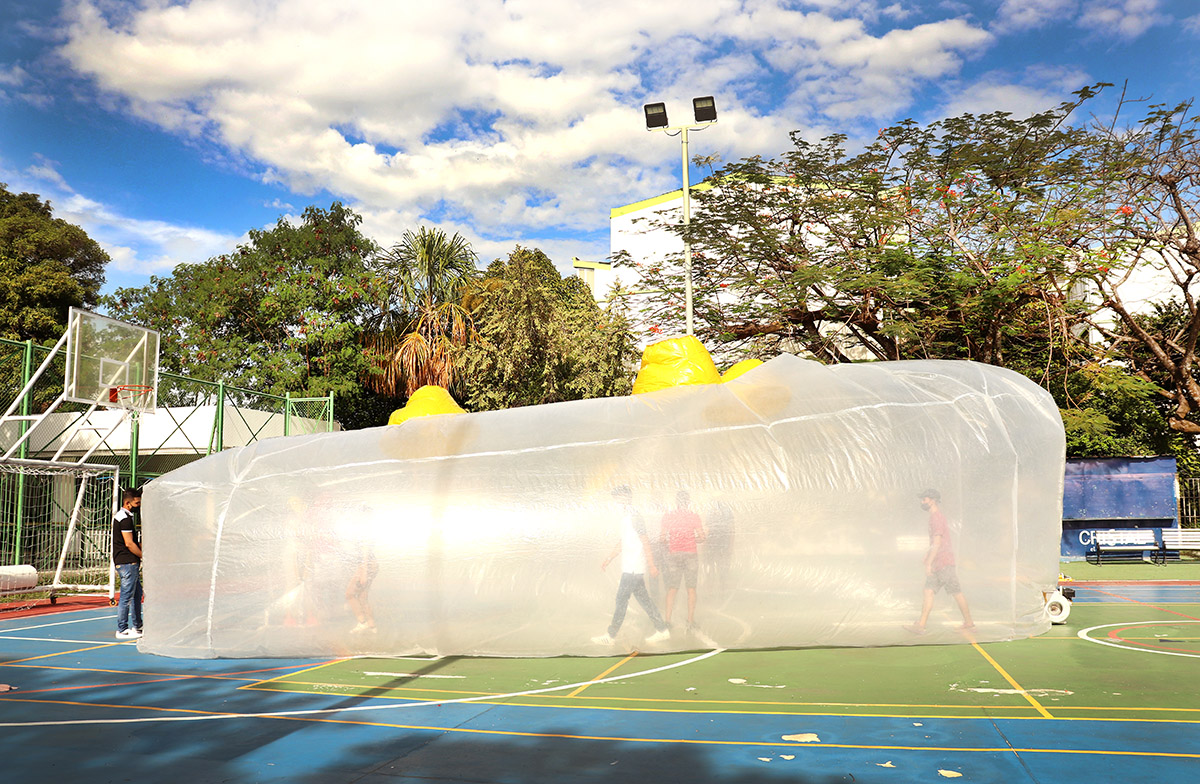
"In this way, these inflatable structures behave like a living organism capable of awakening the restlessness, creativity and curiosity of students and passers-by… "A guard, on the opening day of the installation, approached and asked: Is it the design of a spaceship?," stated in a project description.
The installation generates both in its exterior and in its interior a strange and disruptive atmosphere to the environment in which it is located, generating a surprise effect and a sensory experience that produces a dissociation between the real and the unreal.
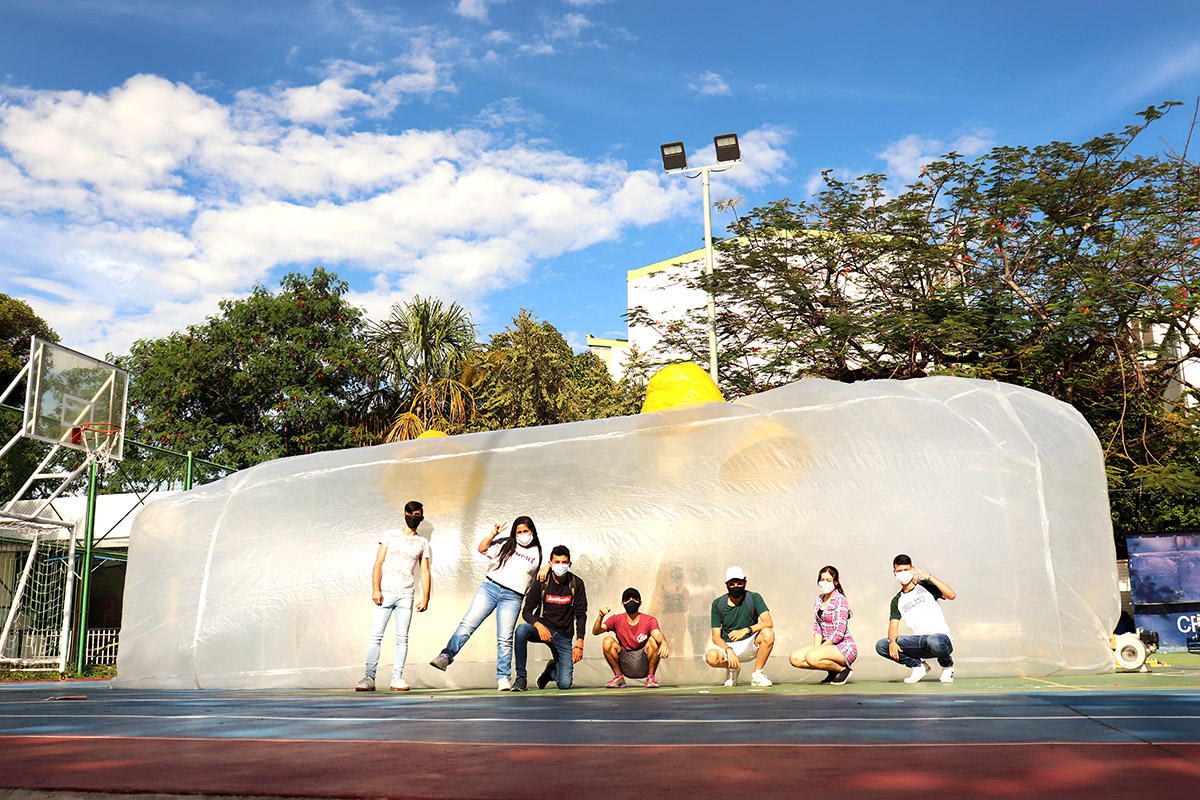

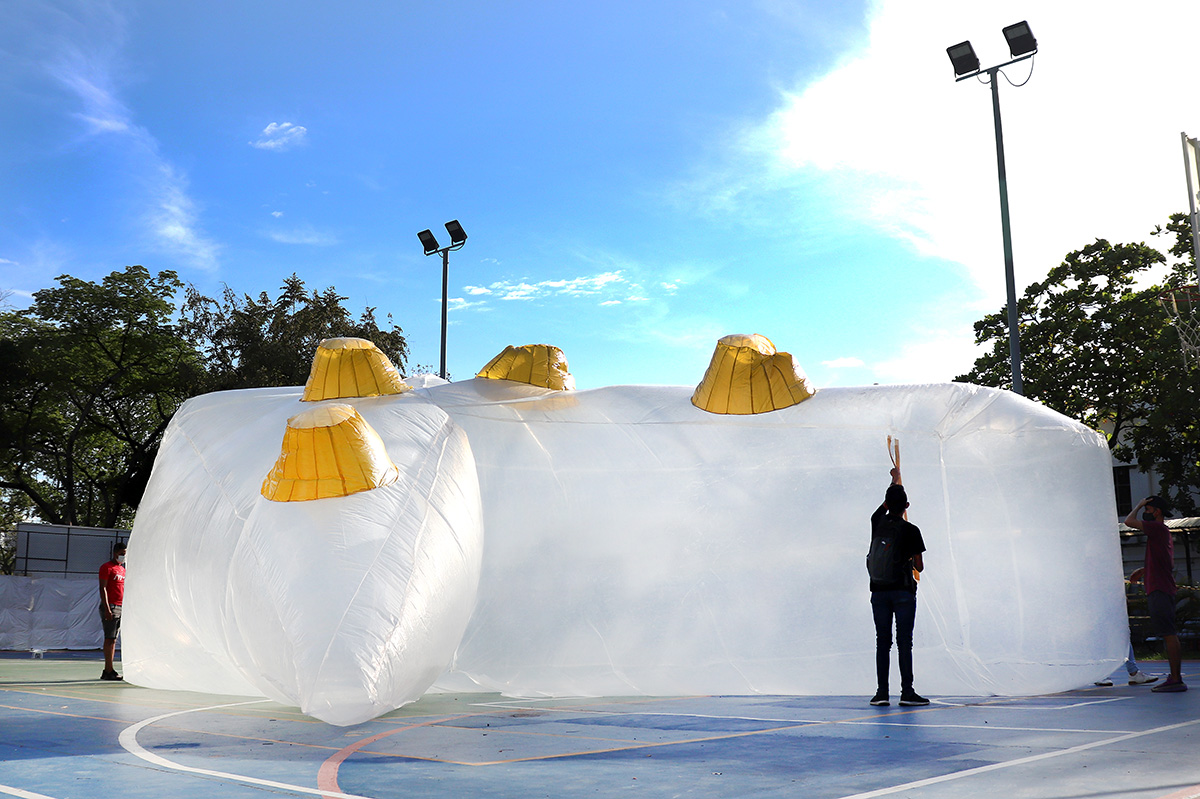

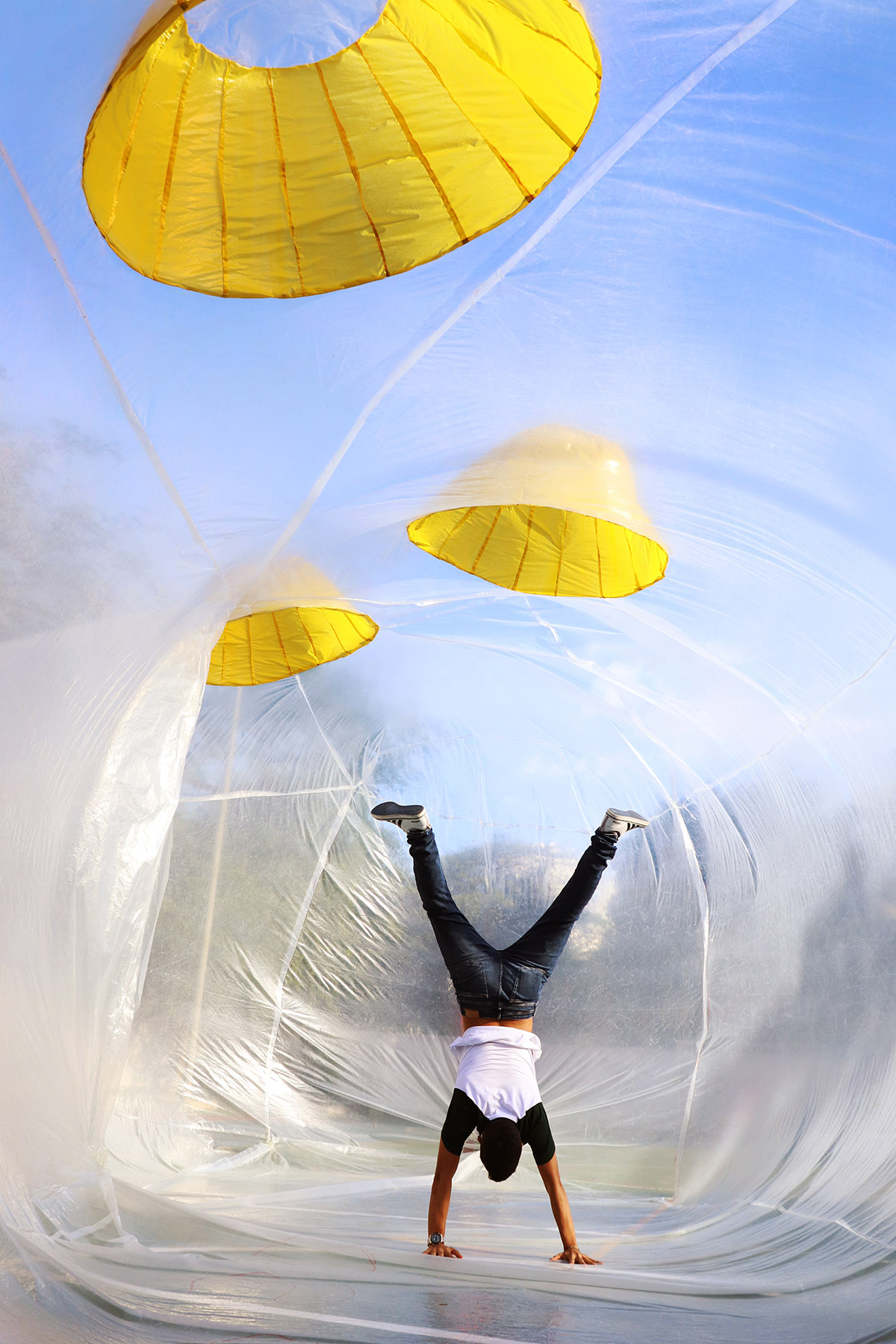
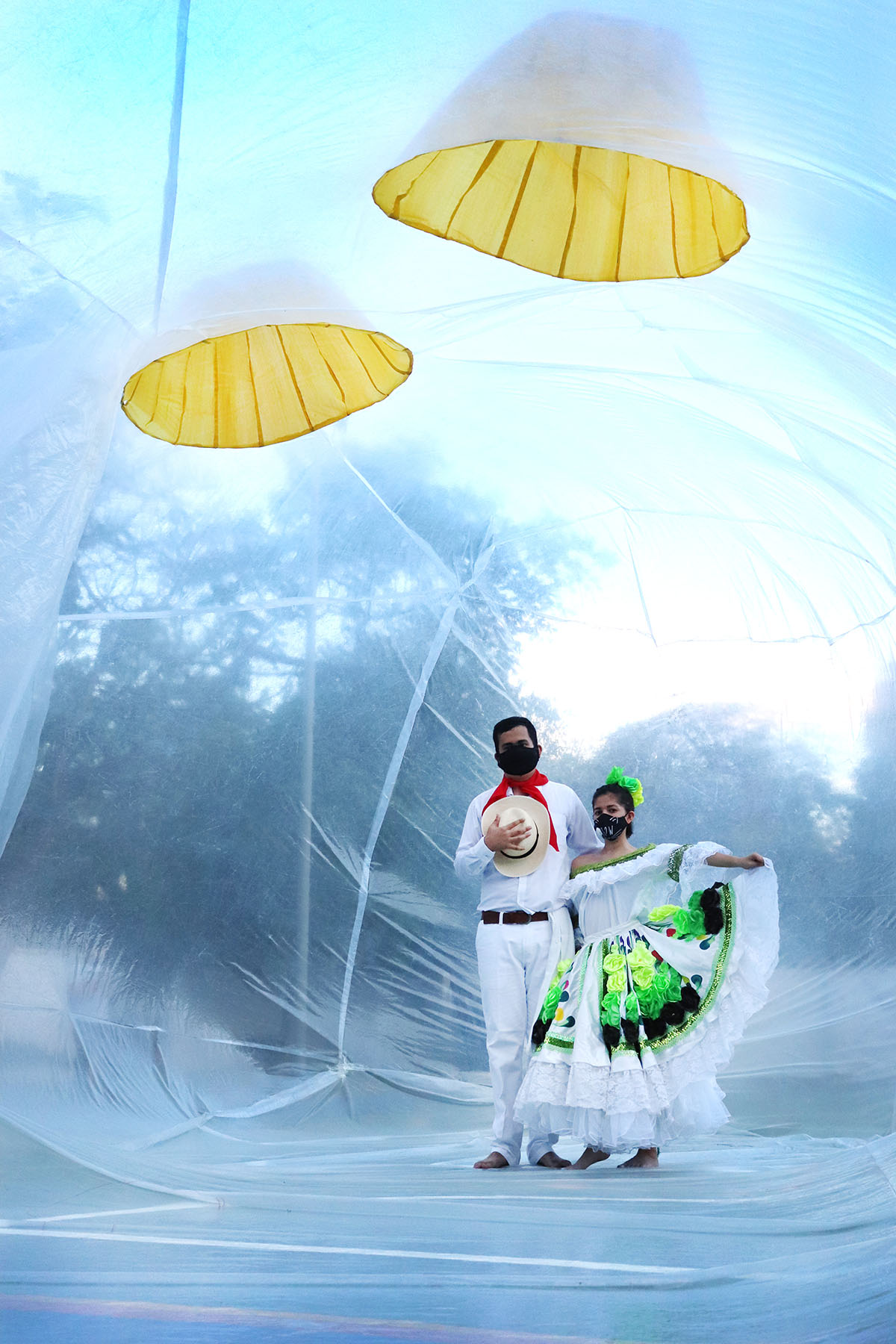
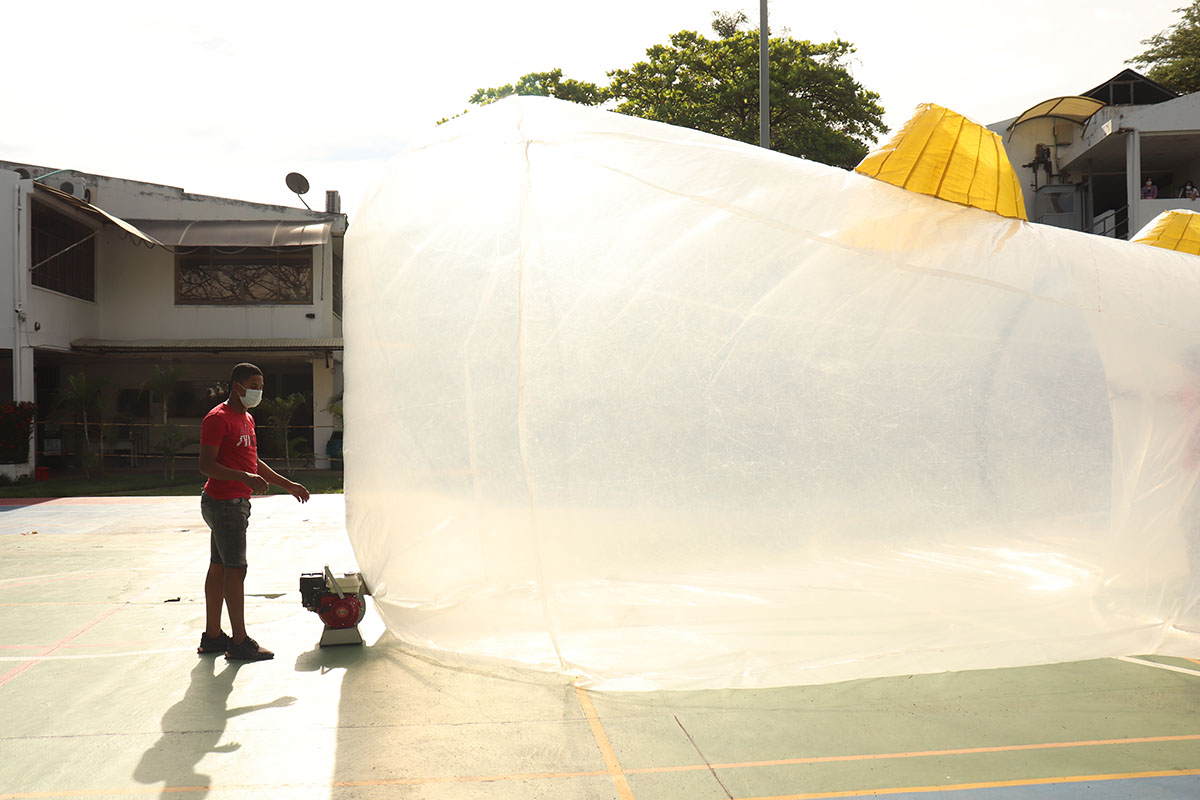

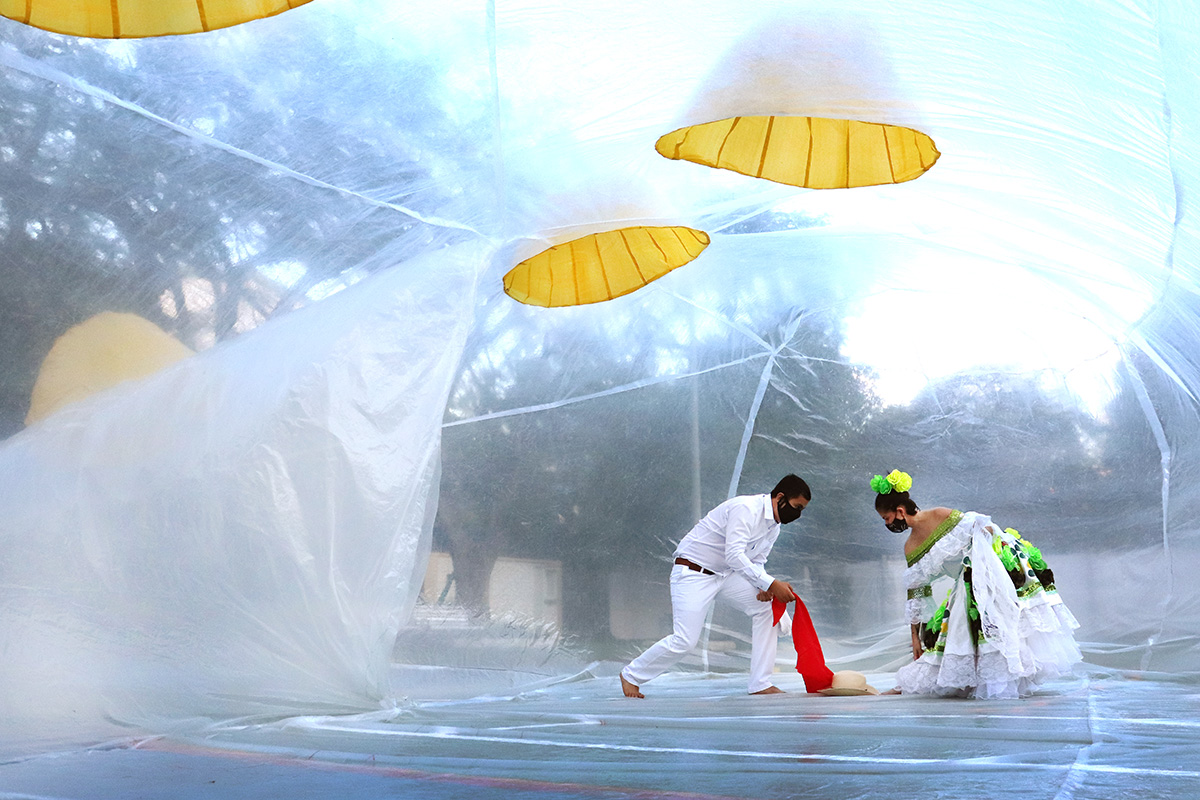
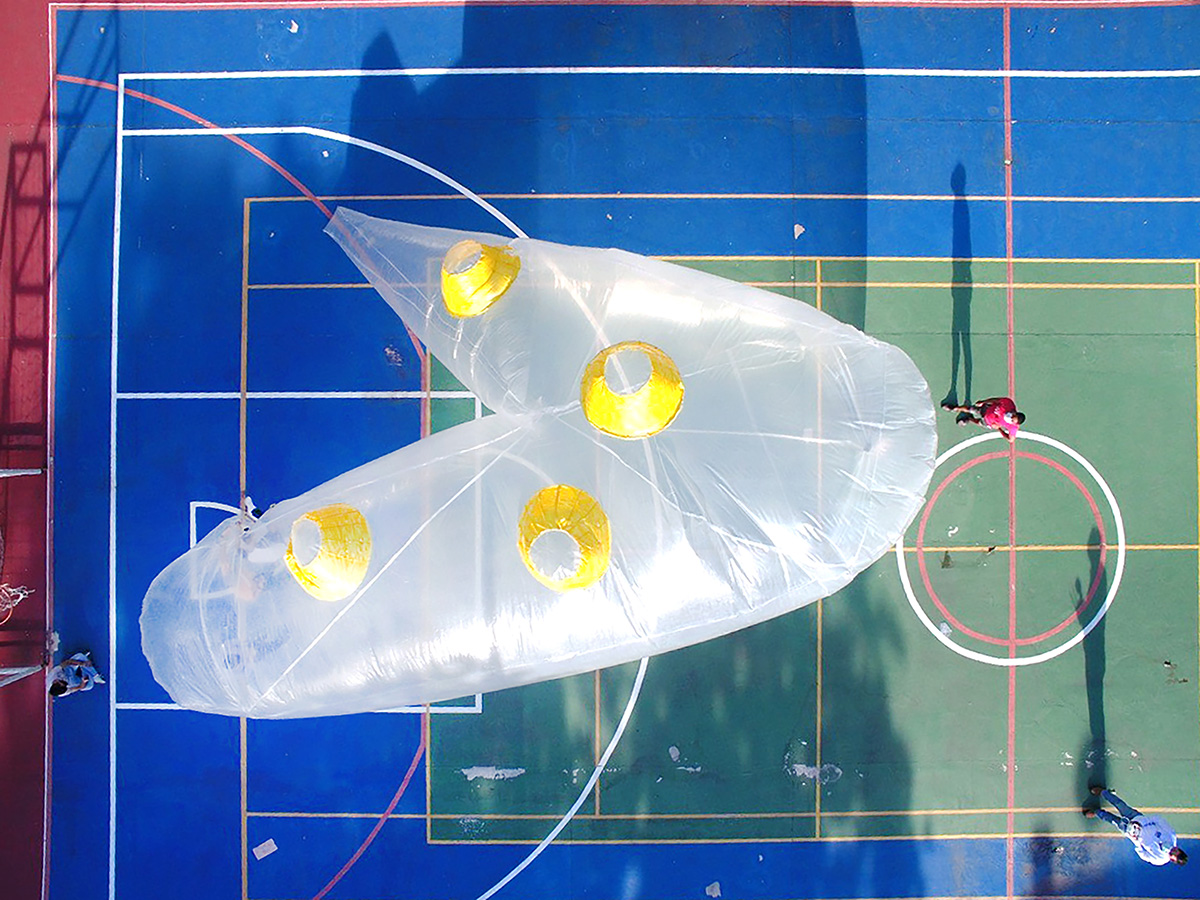
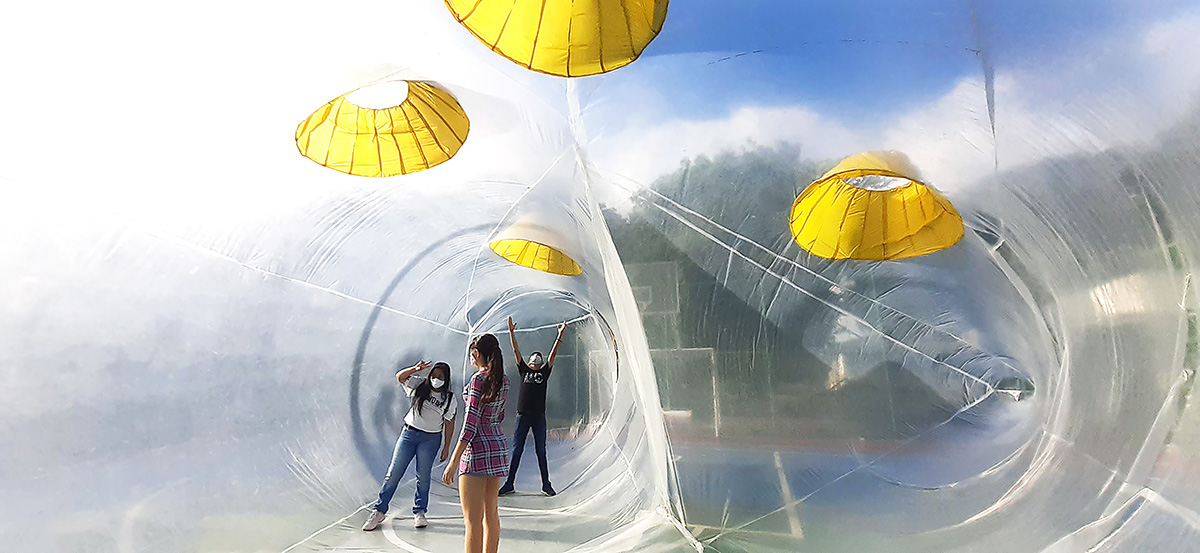
Project facts
Project's name: Artificial Topographies: Between The Real And The Unreal
Architecture office: Portable City Workshop
Country of Office: Colombia
Construction completion year: 2020
Builded surface: 35 m2
Location: Neiva, Colombia
Architects in Charge: Marwin Victoria
Designer Team: Engineering Students + Corhuila University.
Client: Corhuila University
Collaborators:
JUAN CAMILO BARREIRO / BM TOPOGRAPHY.
HAROLD PÉREZ TEJADA.
All images © Andres Hernandez Victoria
> via Portable City Workshop
